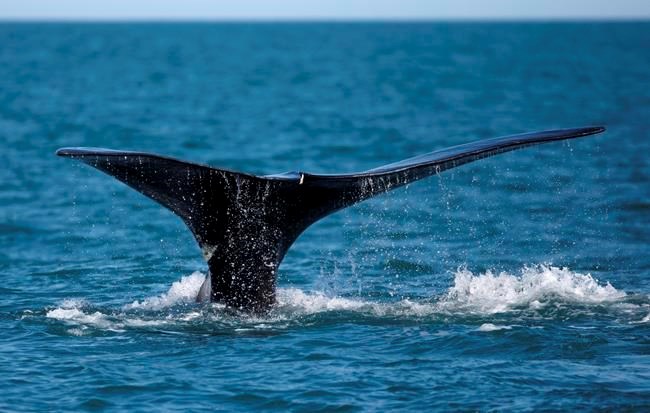TORONTO — Canadian populations of globally endangered species have declined by 42 per cent on average since 1970, according to a new report from the World Wildlife Fund, and the organization is calling on governments to better protect animals from multiple threats.
James Snider, vice president of science, knowledge and innovation at WWF Canada, said the decline in species populations is a result of five major issues: habitat loss, over-exploitation of commercial species, climate change, pollution and a loss in biodiversity.
He said conservation approaches have generally only tackled one threat at a time, but the dramatic reduction in population shows there needs to be a comprehensive conservation strategy that takes all threats into account.
"We need to recognize that the actions that we take for climate change, for biodiversity, for recovery of species at risk are deeply integrated," Snider, who co-authored the report, said in an interview.
"We can't simply be taking an approach to protected areas that's separate from how we're tackling climate change, that's separate from how we're trying to recover our species at risk. They have to be deeply integrated."
The WWF study used data representing thousands of wildlife populations from more than 800 species of animals, including mammals, birds, fish, amphibians and reptiles.
It also found that populations of Canadian species that are nationally designated as at-risk had declined by 59 per cent since 1970.
"Ultimately, this is an important moment for us to recognize that biodiversity loss and wildlife loss is occurring in Canada," said Snider.
In one bright spot, the report found that lands managed by Indigenous populations were better at supporting a diverse range of at-risk species. WWF said the Canadian government must elevate the importance and sovereignty of Indigenous conservation efforts.
The WWF also called on the government to restore degraded ecosystems and create well-sited protected areas to better conserve wildlife populations.
"In Canada, we are not exempt from the global extinction crisis," said Snider.
"It's very easy for us to assume that the loss of biodiversity elsewhere in the world isn't happening here, and the findings of this report shows otherwise: We are seeing significant decline in some of our most imperilled species."
This report by The Canadian Press was first published Sept. 2, 2020.
The Canadian Press

